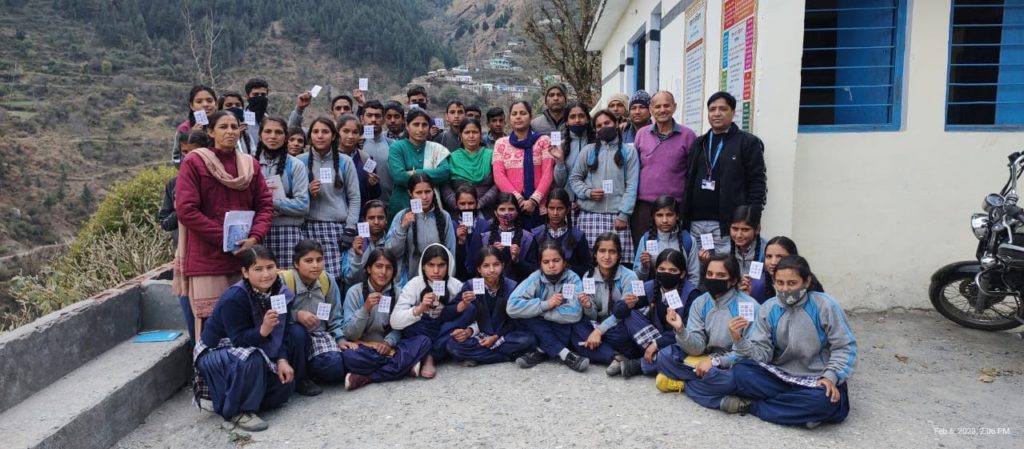Since the 2000s, the Rural Development Institute (RDI) of the Himalayan Institute Hospital Trust has been instrumental in transforming the lives of tribal communities in the Kalsi and Chakrata blocks of Dehradun, Uttarakhand. Through a multi-sectoral approach spanning health, education, water, and sanitation, RDI addresses the unique challenges faced by these mountainous and underserved regions, empowering communities to achieve sustainable development.
The “Minimum Intervention Package of Services” was one of RDI’s pioneering programs aimed at ensuring sustainable health and development for marginalized tribal communities in Chakrata. It comprised four key components: service provision, capacity building, health education, and a simple Management Information System (MIS) for data-driven decision-making. Clinical services were made accessible through satellite and multi-specialized curative clinics, offering a lifeline to remote populations.
RDI also implemented a Comprehensive Rural Epilepsy Surveillance Program in Chakrata, conducting a community-based cross-sectional study to determine the prevalence and profile of seizure disorders. Identified cases were treated during outreach health camps, with more complex cases referred to the Himalayan Institute Hospital Trust for advanced care. This initiative not only improved epilepsy management in the region but also contributed to academic research, culminating in the publication of the study titled Comprehensive Rural Epilepsy Surveillance Programme in Uttarakhand State in India in Neurology India (2009).
Understanding the transformative power of education, RDI has consistently worked to enhance learning opportunities for tribal children. Community-based education centers in remote villages have provided primary education, while scholarships have reduced financial barriers, preventing dropouts and promoting higher education. Adolescents have benefited from workshops on health, hygiene, and life skills, fostering empowerment and reducing gender disparities.
In addressing the pressing issues of water security and sanitation, RDI has introduced innovative and sustainable solutions. Traditional water sources have been revived through spring-shed management, ensuring year-round availability, while rainwater harvesting has mitigated water scarcity. Community education campaigns have emphasized safe sanitation practices and hygiene, reducing the incidence of waterborne diseases. Solid and liquid waste management systems have further improved environmental health in the region.
In recent years, a landmark initiative, the “Comprehensive Primary Health Care Services for Tribal Region,” has been launched in collaboration with New Space India Limited to target Nagthat in Kalsi block. This program offers outreach health camps focusing on maternal and adolescent health, trains community health workers to manage high-risk cases, and provides antenatal and postnatal care. Pregnant and lactating women receive essential health services, while adolescents are educated on adolescent health issues and supported through growth monitoring and counseling sessions. Malnutrition interventions further enhance maternal and child health outcomes. Secondary consultation services have been provided through Telemedicine services, which not only reduced the cost of treatment for the beneficiary but also reduced the severity of disease as well as mortality in these areas.
RDI’s integrated interventions have brought transformative changes to tribal Uttarakhand. Health initiatives have reduced malnutrition, improved maternal and child care, and increased access to essential healthcare. Education programs have boosted school enrollment and retention, while water and sanitation efforts have ensured clean water access, reduced disease, and improved overall community well-being.
By bridging gaps in health, education, and infrastructure, RDI continues to foster resilience and self-reliance among tribal communities. Its commitment to knowledge-sharing and resource empowerment highlights its dedication to creating equitable, thriving communities in Uttarakhand’s most challenging terrains.

